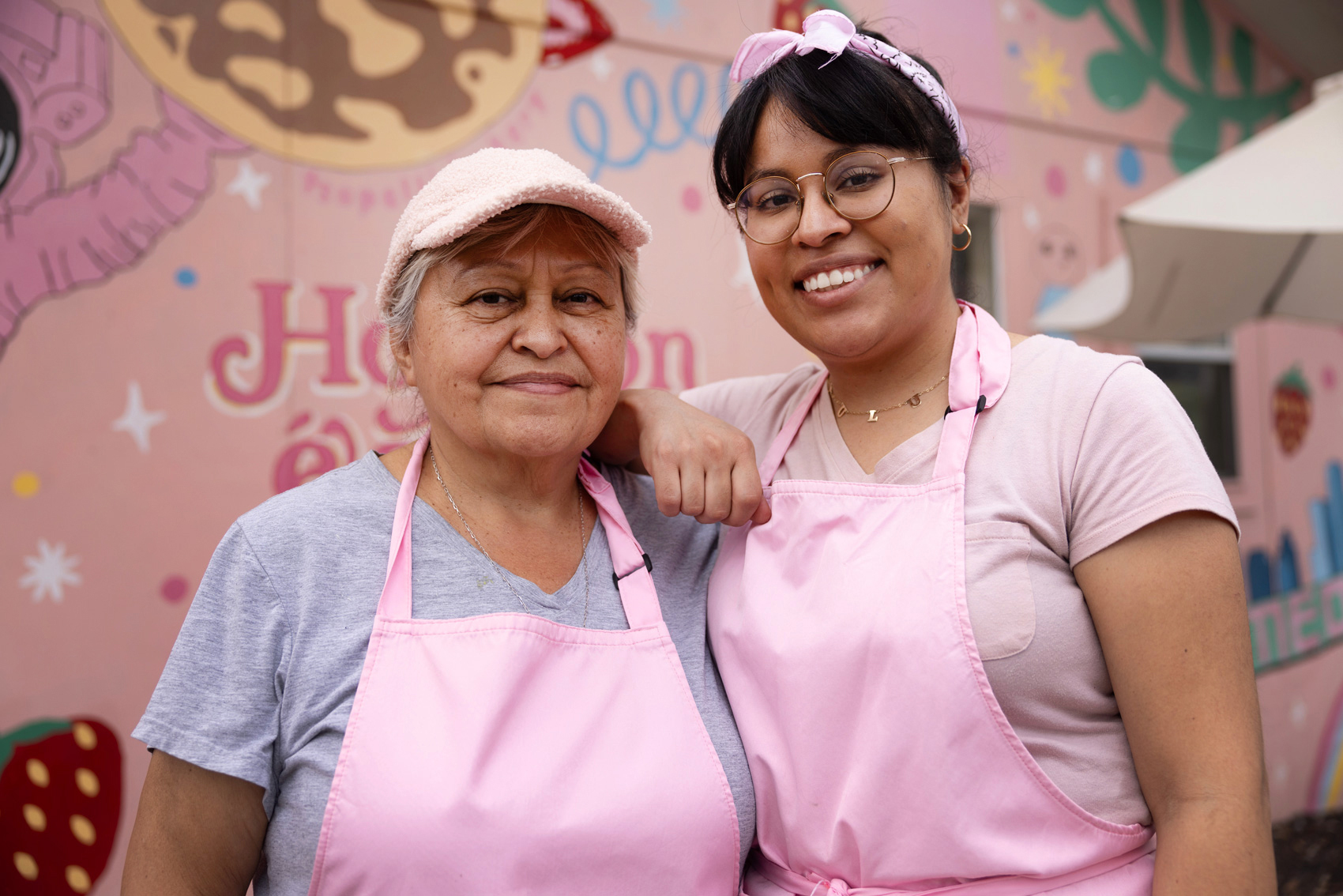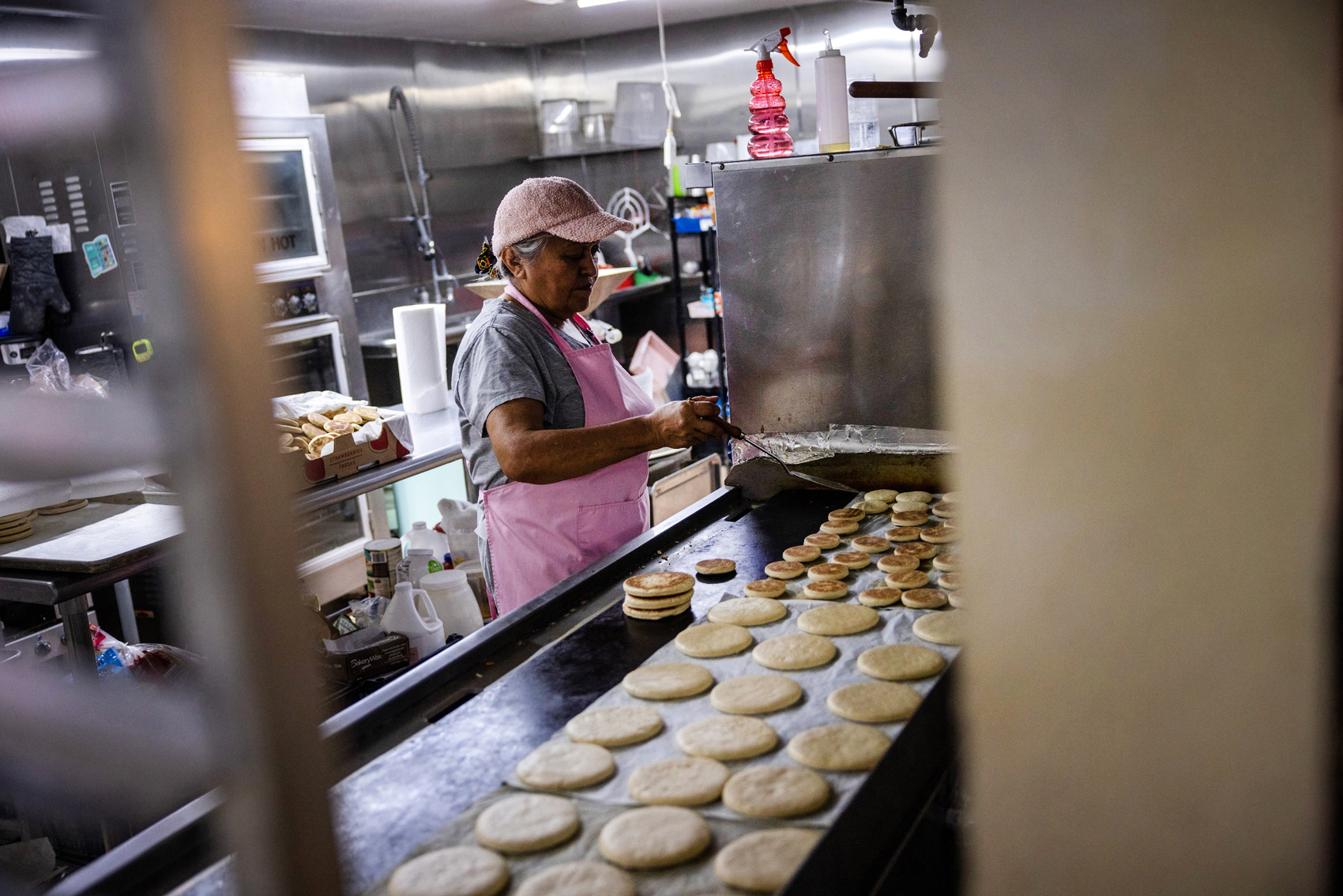|
Getting your Trinity Audio player ready...
|
This is the second story in a broader series called the Small Business Guide, where the Landing will break down different resources and tips for starting a small business in Texas.
Resources to help you during the permitting process
Houston Permitting Center: The city of Houston offers an online project planner that can help you find the permits you may need for your small business. It includes different questions to narrow down your specific business plan.
Houston Health Department: The Food Inspection Program is located at 8000 North Stadium Drive, second floor, Houston, Texas, 77054. You can reach its office at 832-393-5100 between 7:30 a.m. to 4:30 p.m. Monday through Friday. You can also find more information here.
Houston’s City Fee Schedule: The city of Houston has an online city fee schedule where you can look up different permit and certificate prices. Make sure to check directly with the department you are applying to regarding fees.
State of Texas: Texas offers an extensive guide for all kinds of businesses and the different permits you may need. The state also offers a handout to help you track the permits you apply for. It also offers a Small Business Resource Portal that provides resources such as funding opportunities and information on permits to small business owners.
Small business development centers: The University of Houston Texas Gulf Coast SBDC Network offers various locations and resources to small business owners, including where to go for permits you may need.
Harris County Public Health: If you're outside Houston city limits, you may have to contact your city or county’s health department. For Harris County, you can find more information online here.
One of the hardest things Lourdez Monjaraz had to do was break the news to her parents that she was going to quit college. Two years into an engineering degree, she realized she wanted to do something completely different: help her mother grow her bakery business.
Six months after the grand opening of their first brick-and-mortar location of Tsopelli Bakery, Monjaraz, 27, sat across from her mother, Fausta Monjaraz, 60, reminiscing on their long journey there.
The daughter pointed to a corner of the restaurant’s colorful, anime-themed mural on the patio that reads, “Cualquier lugar puede ser el paraíso, solo depende de ti,” which translates to: “Any place can be a paradise, it’s just up to you.”
The mother-daughter duo turned a fixer-upper home that they already owned into their paradise. But to get their business to this point, they had to undergo two years of construction, inspections, filing permits, and many visits to the city of Houston’s Health Department for information before they could open the door to a single customer.
“It was hard,” Lourdez Monjaraz said. “We were a little too far in to look back… But we were on standby for two or three years.”
The permitting process can be confusing and complicated for someone who’s never opened a food establishment before. Here are some of the basic and not-so-basic requirements to keep in mind:

Determine the type of food establishment you want
Houston’s permitting process is different for various types of food establishments. A food truck will require different documentation, inspections and permits, for example, from a street cart or a brick-and-mortar restaurant.
Fausta Monjaraz started selling gorditas out of her home, and eventually found a better venue at Sunny Flea Market.
But after about 15 years of success at the flea market, the family decided it was time to expand.
In the midst of the coronavirus pandemic, they transformed a vacant corner property that they already owned into a bakery. Construction wasn’t really an issue for the family, they recall, but figuring out how to get the restaurant permits they needed proved more difficult than they expected.
“The challenge here was to transform this from a home to a food business,” Fausta Monjaraz said.
Get approval for your construction plans
The first step is to determine if your food establishment requires construction plans to be submitted.
According to the city's website, detailed plans need to be submitted for:
- New food establishments
- Remodeling a location that wasn’t previously a food establishment
- Reconstruction of the food establishment such as an expansion or removing walls
- Any remodeling that “changes the scope of the food operation”
These plans must be submitted to the Houston Permitting Center – Commercial Plan Review located at 1002 Washington Ave., Houston, Texas, 77002, and the Health Department Plan Review, which is located on the third floor.
Plans will be routed through the most suitable city department, and once approved, you will need to ask for an appointment with the Bureau of Consumer Health Services, said Christopher Sparks, chief of the bureau of consumer health services.
All departments have at least 15 days to review plans. If there are revisions, you have to continue to resubmit until you meet all the requirements.
Plans for food trucks solely go through the Houston Health Department and Houston Fire Department for approval, which also provide the official permits.
A food truck must have a fire suppression system over the stove that has to be approved by the fire department.
“We both have to approve you to be able to get what we call a ‘medallion’ or permit to operate a food truck,” Sparks said.
Decide your menu
Your menu and restaurant layout must also be approved by the city. If you plan to serve alcohol, you would then need an alcohol permit as well. To do so, fill out an application with the Texas Alcoholic Beverage Commission.
It can take between 30 to 35 days for an application to be processed through the commission. It can take longer depending on the permit.

These are the certificates you would need to begin operating
Anyone who serves or sells food must obtain a food dealer’s permit from the Houston Health Department. There are several ways to obtain licensing or certification to handle food.
The Houston Health Department offers accredited state of Texas online courses to receive a food manager certificate and food handler training.
The department offers in-person classes in English, Spanish, Vietnamese and Chinese for those wanting to be certified. Classes are hosted at the Environmental Services Division located at 7411 Park Place Blvd. Call 832-393-5100 to register. In-person certification is only valid in the city of Houston.
If you need to renew your certificate or you’ve taken a class previously, you can opt to take the exam with the city. The exam is an hour long.
For those already holding an accredited state of Texas or national credentials, they can receive a city of Houston reciprocal certificate as well.
The food handler class is an hour and a half and can typically be done online, Sparks said. A city official can also visit your food establishment to teach the course.
The food service manager class is also available online and is offered in multiple languages. It’s a 15-hour course with an additional hour for the exam. It can also be taken in person.
You must also register for a sales tax certificate, said Kim Way, director of the Houston Center within the University of Houston Texas Gulf Coast SBDC Network. You can do that on the Texas Comptroller website. The certificate arrives about two to three weeks after you submit an application. Most businesses will require it but not all.
Almost all tangible goods are subject to sales tax, Way said.
Restaurant owners avoid paying sales tax on items purchased from a food vendor through the sales tax certificate, Way said. This certificate allows you to charge the sales tax to the end customer buying the item, instead of having to pay a tax on the items purchased through the vendor.
Be sure to check when each certificate expires to current with your certificates and training to continue operating.
Prepare for an inspection and avoid these common mistakes
An inspection by the Houston Health Department is the last step toward opening a food establishment. You can schedule an appointment with the Consumer Health Services Permit at 832-393-5100 between 7:30 a.m. and 4 p.m.
“We do an inspection, make sure that you built it the way that you said you were going to build it, with the materials that you said you were going to build it with and then if everything is the way it’s supposed to be, we’ll go ahead and approve,” Sparks said. “You’ll get the invoice to pay for your permit on the spot.”
From beginning to end, the process for mobile units can take between 60 to 90 days to complete prior to opening, Sparks said. Brick-and-mortar establishments take longer due to dealing with more requirements from city departments.
Most food truck owners fail their inspections because the truck uses domestic equipment rather than commercial, or it lacks a fire suppression system over the cooking equipment, Sparks said. In 2023, the fire department required fire suppression systems to be installed in mobile food trucks.
For brick-and-mortar restaurants, the most common reason for having to resubmit construction plans is structural issues.
For example, kitchen areas must be painted a light color so food stains are easily spotted. Ceiling tiles must be nonabsorbent and easily cleanable as well.
“If the paint is black and some ketchup or something gets on the wall, you may not see it. Therefore, walls have to be light in color,” Sparks said.
Restaurants must also use commercial-grade equipment, not residential equipment.
“Mom used to always tell you to stop going in and out of that refrigerator because domestic refrigerators don't bounce back quickly – but if you're in a restaurant and you're serving a lot of people, you're constantly opening that door,” Sparks said.


The final product
The Monjaraz family can attest to the difficulty of meeting standards, and wish they had known more about the process ahead of time.
“They told us no several times,” Lourdez Monjaraz recalls. “We would go and tell them, ‘We already have this, this and this ready.’ But they would just say no, and those no’s would hurt.”
With permits finally granted, Tsopelli Bakery opened at 806 Gulf Bank Road in September 2023 to dozens of customers waiting to try their treats.
The business has gathered more than 20,000 followers on social media so far. They’ve also expanded their menu to include other baked goods, including cakes, macarons, tamales Huastecos and more.
“We compliment each other,” Fausta Monjaraz said about her daughter who takes care of online marketing, choosing what new anime-themed goods she can add to the menu.
Lourdez is growing her baking skills along with the store.
“I want to put more effort into this, echarle más ganas,” Lourdez Monjaraz said. “I want to learn more about the business, add more roles to grow this even bigger and may open another location.”





